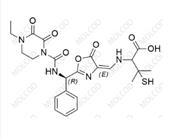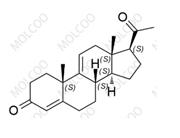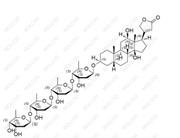Tryptophan EP Impurity K

Product Code:T057011
English Name:Tryptophan EP Impurity K
English Alias:(S)-3-(2-((1H-indol-3-yl)methyl)-1H-indol-3-yl)-2-aminopropanoic acid
CAS No.:149724-31-2
Molecular Formula:C₂₀H₁₉N₃O₂
Molecular Weight:333.38
High-Purity Reference Standard:Confirmed by HPLC (≥99.0%), NMR (1H, 13C), HRMS, and elemental analysis, compliant with EP (European Pharmacopoeia) impurity standards for Tryptophan quality control.
Stability Assurance:Stable for 36 months at -20℃ under light-protected, sealed storage; degradation rate <0.3% in aqueous solution (pH 5-7) within 6 months.
Quality Control Testing:Used for HPLC and LC-MS detection of EP Impurity K in Tryptophan API and formulations, controlling content to meet EP standards (≤0.1%).
Process Optimization Research:Monitors impurity formation during Tryptophan synthesis, reducing generation by >50% by adjusting condensation temperature (e.g., 70-80℃) and reaction time.
Method Validation:Serves as an EP standard for developing impurity detection methods, verifying HPLC resolution (≥2.5) and LOD (0.01 ng/mL).
Tryptophan, an essential amino acid, is used in nutritional supplements and pharmaceutical intermediates. Impurity K, specified by EP, may originate from alkylation side reactions of the indole ring or raw material residues during synthesis. Its bis-indole system may affect Tryptophan's stability and biological activity. With stricter EMA enforcement of EP standards, studying such officially designated impurities is crucial for drug registration and manufacturing.
Detection Technology:UPLC-MS/MS with C18 column (1.7μm) and 0.1% formic acid-acetonitrile gradient elution achieves separation within 3.5 minutes, with LOD of 0.003 ng/mL for EP-compliant trace analysis.
Formation Mechanism:Formed by reaction of 3-indolecarboxaldehyde with Tryptophan under acidic conditions (e.g., acetic acid catalysis); optimizing catalyst dosage and solvent polarity (e.g., ethanol-water system) inhibits side reactions.
Safety Evaluation:In vitro cytotoxicity shows IC₅₀ of 178.6 μM against C2C12 myoblasts (Tryptophan IC₅₀=21.3 μM), with low toxicity but requiring ≤0.1% limit. Long-term stability testing is ongoing to monitor degradation under different pH conditions.
This product is intended for laboratory use only!
WhatsAPP: +86 17320513646
E-mail: anna@molcoo.com
NEW IN STOCK!
The Molcoo Laboratory added drug impurity reference standards, including Baricitinib, Piperazine, Benzylpenicillin, Tranilast and multiple N-Nitroso drug impurities! Now available for immediate delivery!
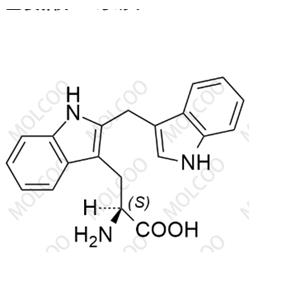




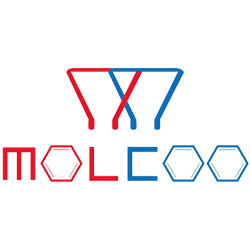
 China
China
